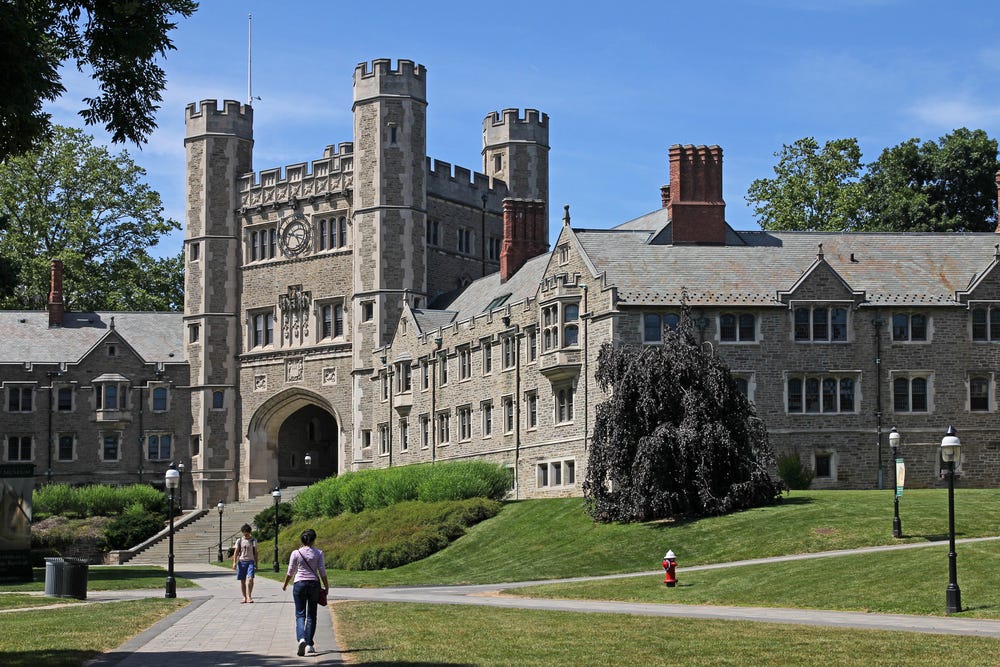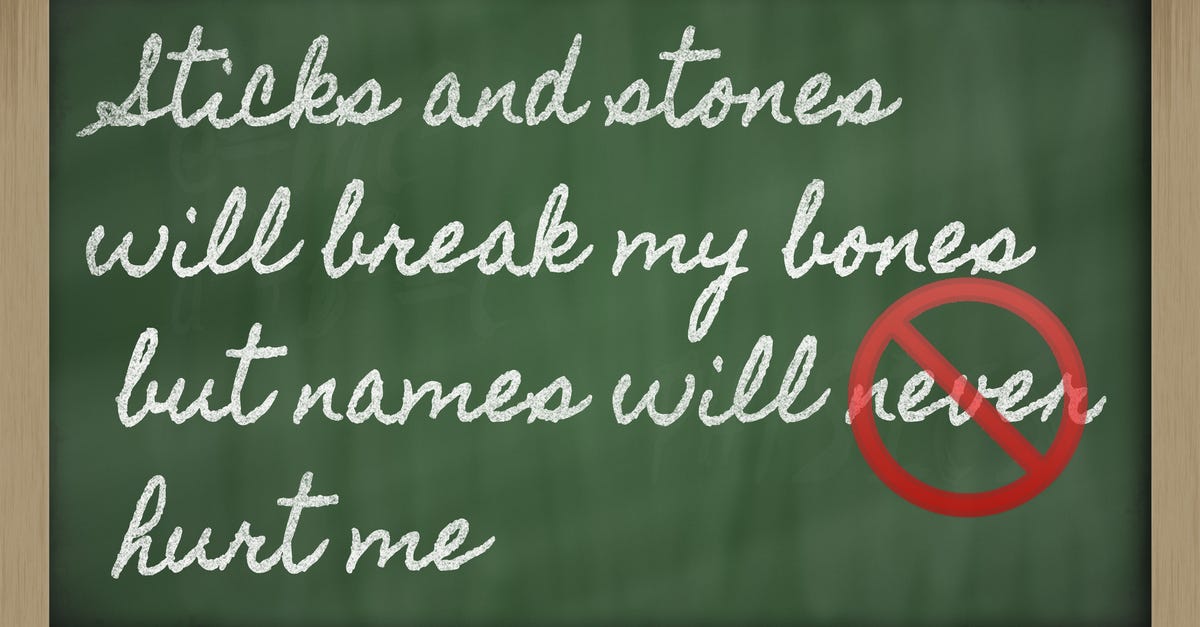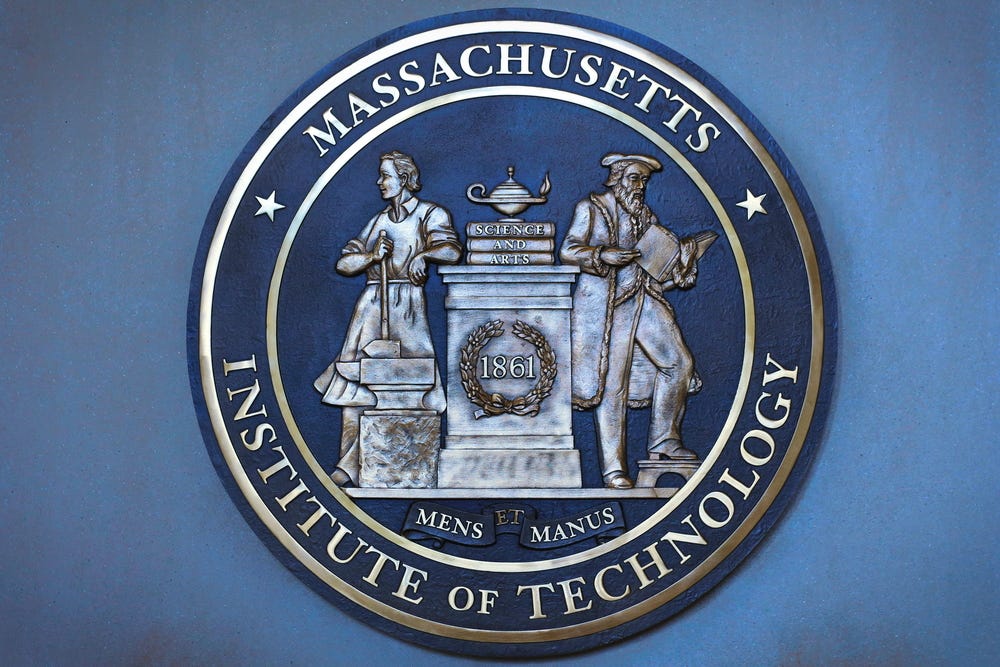E-Pluribus | April 13, 2022
Princeton's free speech issues go all the way to the top, sticks and stones *and* words, and MIT fails a professor.
A round up of the latest and best writing and musings on the rise of illiberalism in the public discourse:
Sergiu Klainerman: Princeton’s Mixed-Up President Discards Free Speech and Demonizes Its Defenders
If Princeton University is as an institution struggling with free expression, Sergiu Klainerman, a math professor at the school for 35 years, writes at Tablet Magazine that the man at the top is in the same boat. Klainerman says Princeton president Christopher Eisgruber attempts to reconcile the irreconcilable is confusing and ultimately damaging to the students and the institution that is supposed to open their minds and challenge their preconceived notions.
To his credit, [Princeton University president Christopher] Eisgruber sincerely believes in academic freedom, a fact that explains why Princeton was the first educational institution, after the University of Chicago, to adopt the so-called Chicago Principles of free expression. However, he also quite sincerely holds the belief, consistent with the progressive view, that a main goal of the university is to advance “social justice”—a principle whose advocates proclaim it to be of urgent and totalizing importance. In holding these two beliefs together at the same time, Eisgruber may be demonstrating the power of a first-rate intelligence, which, as Princeton dropout F. Scott Fitzgerald once wrote, shows the “ability to hold two opposing ideas in mind at the same time and still retain the ability to function.” He is perhaps also in danger of becoming a comic opera character in the middle of an unfolding tragedy that threatens the foundations of higher education in the United States.
[ . . . ]
Unfortunately, Eisgruber’s view of social justice seems to be the off-the-shelf version promoted by “progressive” ideologues who see the redistribution of jobs and honors on the basis of skin color and self-assigned identity groupings—and the overt censorship of anyone who disagrees with them or opposes their drive for institutional power—as central to their conception of “justice.” Foundational to this approach are the tenets of critical race theory, which mandate a framework in which the United States as a whole and Princeton University in particular must be understood to be systemically racist. According to CRT, denying this framework is prima facie evidence of systemic racism.
What to do? Well, to cure Princeton of racism, we need, of course, a large and energetic group of Diversity, Equity and Inclusion (DEI) bureaucrats whose main functions are to monitor every possible manifestation of racism and other -isms, however small or unlikely, and, more importantly, to reeducate students, faculty, and fellow administrators through a battery of invasive anti-racist, anti-sexist, anti-colonialist, and anti-Western programs, turning the long-standing ideal of the university as a sheltering home for free inquiry on its head in order to produce something more like a very expensive reeducation camp for the children of American elites, and for the people whose job it is to cure them. (A few years ago, it should be said, Eisgruber promised not to impose mandatory DEI training programs. A DEI-infused orientation is now mandatory for all freshmen, but we still hope he will otherwise keep his promise.)
Read it all here.
Jennifer Kabbany: Yale psychiatrist argues verbal assaults ‘just as detrimental as physical violence’
Recent years have seen property destruction declared not “violence” while words and even silence have been classified as such. Jennifer Kabbany reports at The College Fix that it is not only activists and pundits switching things up, but now a Yale psychiatrist has used the occasion of Will Smith’s Oscar slap to float the idea as well.
“If you claim to be sensitive to the potential effects of physical acts, you should also be sensitive to the potential effects of verbal acts. Sometimes, jokes are not entertaining to those targeted by them, and can be just as detrimental as physical violence,” [Dr. Amanda Calhoun, a Yale School of Medicine psychiatry resident] wrote April 11 for MedPage Today.
Her piece is headlined “Should Will Smith’s Slap Be Condemned More Harshly Than Chris Rock’s Words?”
“Instead of siding with Smith or Rock, I believe the situation is far more nuanced. And it begs a broader question: Should a physical assault always be judged more harshly than a verbal assault, no matter the context? I don’t think so,” Calhoun wrote.
She called verbal assaults “a form of abuse, and can lead to depressive symptoms and even suicide.” She cited two cases in which children suffered from various maladies due to being bullied.
Read the whole thing.
Ellen Carmichael: The Moral Panic at MIT
While the #MeToo movement has clearly exposed more than a few bad actors, there is evidence of innocent individuals being swept up in the campaign to out abusers. Last week the Massachusetts Institute of Technology announced Dr. David Sabatini was stepping down from his position despite strong evidence that his accuser is mischaracterizing the circumstances of their relationship, writes Ellen Carmichael at Minding The Campus.
If you’re looking for proof that America’s panic-stricken institutions of higher education are still in the throes of punitive overreach from the MeToo movement, look no further than the announcement last week that the Massachusetts Institute of Technology (MIT) is parting ways with its most preeminent medical researcher, Dr. David Sabatini.
[ . . . ]
In its announcement of his exit, MIT stated that Sabatini violated its policies by not disclosing this relationship, and he and his ex are currently in the middle of a lawsuit over competing versions of their dating history.
In his response, Sabatini claims that this former girlfriend, a doctor with her own lab at Whitehead, was angry after he declined her proposal of marriage, thus ending the relationship. While he presents extensive documentary evidence, including text messages, of their intimacy and affection, her counterclaim is that the relationship constituted sexual harassment and that Sabatini was “grooming” her coercively.
But the evidence presented in the filings suggests that this was more likely a bad breakup recast after the fact as misconduct. This kind of pattern has been one of the most alarming excesses of the MeToo moment, and in the hyper-charged atmosphere of higher education, it’s often lethal.
[ . . . ]
The one-sided press, and the fear of the backlash it could drive against the university, no doubt played a role in MIT’s decision to push Sabatini out on the thinnest of bases. We know all too well how moral panics and fear of cancel mobs have driven decision-making at elite institutions in recent years. That’s why it’s so striking that even the co-founder of the Whitehead Institute stuck up for Sabatini in the press, rebuking the prevailing narrative by telling Science magazine last week about Sabatini’s “excellent mentorship” of the scientists under him. Given what we know about the potential for cancellations to bring collateral damage to anybody who shows sympathy for the accused, this is another red flag indicating there’s more to the story than has been reported.
We have here a failure of both journalism and academia. They have abandoned their vaunted skepticism—the role for which society depends on them the most—in favor of blinkered tunnel vision with both hands over their ears. The Boston Globe’s hyperventilated reporting erroneously describes Sabatini’s ex as a “graduate student,” so vulnerable that they won’t even print her name or age. But in reality, she is a woman in her thirties, a fully credentialed PhD, who filed a public lawsuit, represented by a former US District Court judge. The Globe thus infantilizes its subject while taking its readers for fools.
Read it all.
Around Twitter
A thought from Wesley Yang on what he sees as a true institutional problem:
Bari Weiss’s latest podcast comes highly recommended and features Jonathan Haidt on Why the Past 10 Years of American Life Have Been Uniquely Stupid, building off his recent Atlantic essay:
And finally, Peter Boghossian begins a series on Ibram Kendi’s children’s book “Antiracist Baby.” (And by the way, not to put too fine a point on it, although I understand poetic license, “born” doesn’t actually even rhyme with “transform.”)










